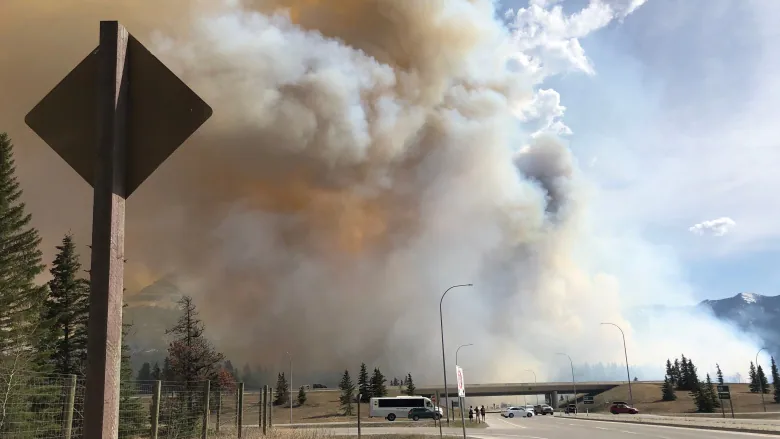Fort Nelson, B.C. Braces for Impending Wildfire Threat Amidst Worsening Conditions
As forecasts predict escalating westerly winds in northeastern British Columbia, Mayor Rob Fraser of the Northern Rockies Regional Municipality, centered in Fort Nelson, emphasizes the gravity of the situation. With the nearby Parker Lake wildfire looming menacingly, emergency crews are gearing up for what may be their final defense.
Mayor Fraser underscores the potential devastation should strong winds propel the fire directly towards the town. With wind speeds expected to reach 20km/h, escalating to potentially hazardous gusts of up to 50 km/h by Monday, the situation grows increasingly dire. The fire, currently 2 to 3 kilometers away, poses an imminent threat, especially given the challenging conditions experienced on Friday, the day the fire erupted.
The Parker Lake fire, spanning 41 square kilometers as of Sunday afternoon, is just one of several wildfires wreaking havoc across Western Canada. Alberta’s Fort McMurray and Grande Prairie are also under threat, while Manitoba has evacuated approximately 500 individuals from Cranberry Portage, located some 700 kilometers northwest of Winnipeg.
In response to the escalating danger, around 3,500 residents have already evacuated Fort Nelson following Friday’s evacuation order prompted by the rapidly advancing Parker Lake fire. Many have sought refuge in Fort St John or Prince George, B.C., hundreds of kilometers to the south.
Approximately 37 households within Fort Nelson itself and an additional 28 in the surrounding rural vicinity have chosen not to comply with the evacuation directive, constituting a population of roughly 100 to 150 individuals.
Mayor Fraser implores these residents to prioritize their safety and evacuate without delay. He cautions that essential resources, such as water pressure and electricity, may become compromised or entirely unavailable for public use. The redirection of these resources to support firefighting efforts is essential, potentially impacting local utilities.
A statement from the BC Wildfire Service assures that operational and command staff will remain in Fort Nelson as long as safety permits. However, the municipality’s emergency operations center has been relocated approximately 250 kilometers south along the Alaska Highway, as Mayor Fraser disclosed.
The Northern Rockies Regional Municipality issued a cautionary update, highlighting the wind’s potential to significantly exacerbate the wildfires’ spread over the next 48 hours.
The wildfires raging across Western Canada have resulted in deteriorating air quality across multiple regions, stretching from Manitoba to British Columbia. Environment Canada has flagged “very high risk” conditions, categorized as level 10 or higher, on the air quality health index for cities including Edmonton and Winnipeg on Sunday.
According to the weather agency, other communities experiencing heightened air quality risks on Sunday include Fort St. John, B.C.; Medicine Hat, Drayton Valley, and Cold Lake in Alberta; as well as Swift Current, Sask.
Environment Canada anticipates that the very poor air quality situation will improve in most areas by Monday, with only northern Alberta, including Edmonton, maintaining a level 10 or higher air quality risk rating.



